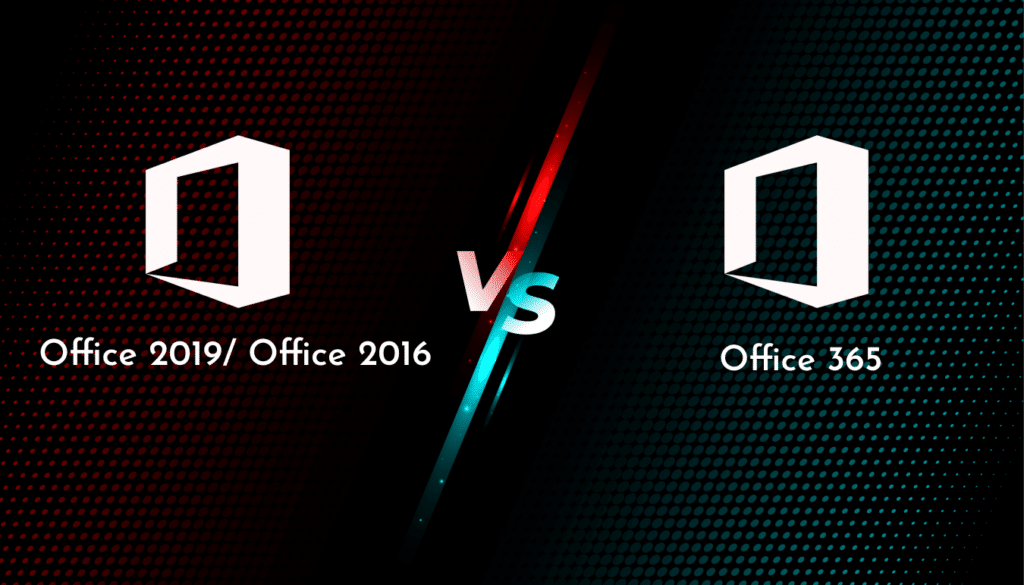Microsoft Office is one of the most widely used productivity suites for both personal and professional use. With several versions of the software available, it can be difficult to choose the right one for your needs. In this article, we will compare the pros and cons of the various versions of Microsoft Office to help you make an informed decision.
Microsoft Office 365:
Pros:
-
- Subscription-based model: Office 365 is a subscription-based model, which means that users pay a monthly or yearly fee for access to the software and its updates.
-
- Cloud-based: Office 365 is cloud-based, which allows users to access their documents and files from any device with an internet connection.
-
- Collaboration tools: Office 365 includes collaboration tools such as OneDrive and Teams, which allow users to work on the same document at the same time and share files with others.
-
- Regular updates: As a subscription-based model, Office 365 receives regular updates with new features and bug fixes.
Cons:
-
- Cost: The cost of an Office 365 subscription can add up over time, especially for businesses with multiple users.
-
- Internet connection required: Because Office 365 is cloud-based, an internet connection is required to use the software.
-
- Limited offline functionality: Without an internet connection, some features and functionality may be unavailable in Office 365.
Microsoft Office 2019:
Pros:
-
- One-time purchase: Office 2019 is a one-time purchase, which means that users pay a one-time fee for the software and do not have to pay for ongoing updates.
-
- Offline use: Microsoft Office 2019 does not require an internet connection to use, making it ideal for those who do not have a reliable internet connection.
-
- Improved performance: Office 2019 has improved performance compared to previous versions of the software.
Cons:
-
- No cloud-based storage: Office 2019 does not include cloud-based storage, so users will need to store their files locally or on an external drive.
-
- No regular updates: Office 2019 does not receive regular updates, which means that users will miss out on new features and bug fixes that are released after the software is purchased.
-
- Higher upfront cost: The one-time cost of Office 2019 can be higher compared to an Office 365 subscription, especially for businesses with multiple users.
Microsoft Office 2016:
Pros:
-
- One-time purchase: Like Office 2019, Office 2016 is a one-time purchase and does not require ongoing payments for updates.
-
- Offline use: Office 2016 does not require an internet connection to use, making it ideal for those without a reliable internet connection.
Cons:
-
- No cloud-based storage: Office 2016 does not include cloud-based storage, so users will need to store their files locally or on an external drive.
-
- No regular updates: Office 2016 does not receive regular updates, which means that users will miss out on new features and bug fixes that are released after the software is purchased.
-
- Outdated software: Microsoft office 2016 is an older version of the software and may not have all of the features and functionality of more recent versions.
In conclusion, each version of Microsoft Office has its own pros and cons, and the right choice depends on the specific needs and budget of the user. Office 365 offers cloud-based storage and collaboration tools, but has ongoing subscription costs. Office 2019 and Office 2016 are one-time purchases with improved performance, but do not include cloud-based storage or receive regular updates. Consider your specific needs and budget when choosing the right version of Microsoft Office for you.
Microsoft Office Versions Frequently Asked Questions:
Ques 1: How do I decide which version of Microsoft Office is best for my business?
Ans: To decide which version of Microsoft Office is best for your business, consider your specific needs and budget. If you need cloud-based storage and collaboration tools, Office 365 might be the best choice. If you prefer a one-time purchase and do not need cloud storage, Office 2019 or Office 2016 could be a better option. You can also consider factors such as the number of users and the level of support required.
Ques 2: Can I use Microsoft Office 365 without an internet connection?
Ans: No, Microsoft Office 365 requires an internet connection to function. This means that if you do not have a reliable internet connection, you may not be able to use the software effectively. However, you can use Office 2019 or Office 2016 offline without any issues.
Ques 3: Are there any discounts available for students or non-profit organizations?
Ans: Yes, Microsoft offers discounts for students and non-profit organizations. Students can purchase Office 365 at a discounted rate through the Microsoft Student Store, and non-profit organizations can apply for a discounted rate through the Microsoft Non-Profit Organization Store.
Ques 4: Can I upgrade from an older version of Microsoft Office to a newer version?
Ans: Yes, you can upgrade from an older version of Microsoft Office to a newer version. Microsoft offers upgrade paths for users who want to move from an older version to a newer one. For example, you can upgrade from Office 2016 to Office 2019 or Office 365.
Ques 5: Are there any free alternatives to Microsoft Office?
Ans: Yes, there are free alternatives to Microsoft Office. For example, LibreOffice and OpenOffice are free and open-source office suites that offer many of the same features as Microsoft Office. However, they may not have all the features and functionality of Microsoft Office, and they may not be compatible with all Microsoft Office files.

